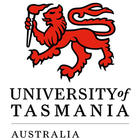Bachelor of Science Major in Geospatial Science
Bachelor of Science Major in Geospatial Science
The University of Tasmania’s new science degree provides you with a foundation of core skills in science, analysis and rational thinking, and entrepreneurship. You also have options to focus your study in one or more scientific disciplines, and learn the methods to apply your skills and knowledge to the practical…
Categories
COURSE DESCRIPTION
The University of Tasmania’s new science degree provides you with a foundation of core skills in science, analysis and rational thinking, and entrepreneurship.
You also have options to focus your study in one or more scientific disciplines, and learn the methods to apply your skills and knowledge to the practical needs of industry, business and government in both scientific and non-scientific roles.
In choosing a Bachelor of Science you can:
Build a degree that is tailored specifically to your own needs: select your major and minor subjects from 17 different disciplinary areas.
Try new subjects without the pressure of long-term commitment and discover potential new areas of interest.
Learn through hands-on practical experience including laboratory work, field trips, field-based units and research projects.
Enjoy being mentored by highly qualified staff, many of whom are national and world leaders in their field.
Career outcomes
The modern economy relies heavily on skilled individuals in the fields of science, engineering and technology. As a result, a science degree is one of the most sought-after degrees at university and among the most respected by employers.
The Bachelor of Science is one of the most flexible degrees at the University of Tasmania, giving you opportunities to focus on one area of study, or select several areas across both scientific and non-scientific disciplines. As a result, your career options are many and varied.
Career Opportunities with Science
A career in science can be in any industry on earth. Some jobs and industries include:
Agricultural science and food innovation
Biochemist
Biologist
Biomedicine, vaccines & disease control
Biosecurity
Chemist
Data analyst
Data scientist
Developmental & functional biologist
Ecologist
Environmental geologist
Environmental sustainability manager
Evolutionary ecologist
Forensic scientist
Genetics
Geologist
Geophysicist
Information technologist
Management and administration
Marine biologist
Mathematician
Medical physicist
Meteorologist
Mining and mineral exploration
Nuclear technician
Optical astronomer
Phylogeneticist
Plant scientist
Policy development
Quantum computing
Radio astronomer
Science journalism
Scientific research & development
Seismologist
Spatial scientist
Teacher
Zoologist
Geospatial Science:
Geospatial scientists provide information that is crucial to decision making and addressing problems of societal significance by harnessing the value of spatial data to map, model and analyse every aspect of our natural and built environments.
The Geospatial Science major provides students with essential skills and knowledge in spatial data collection and analyses. In this major, students will receive hands-on and real-world experiences with spatial data captured by drones, Global Navigation Satellite Systems (GNSS) and earth observing satellites as well as becoming adept in the high level processing and analysis of spatial data.
Students who complete the geospatial science major will be highly employable in both the government and private sector across a wide range of areas e.g. managing land & marine environments, working toward modern and sustainable urban developments, modernising the agricultural sector, working in mining and forestry and understanding the impacts of climate change on our world.
REQUIREMENTS
Admission to undergraduate courses at the University of Tasmania requires the completion of qualifications equivalent to a 12th year of education in Australia.
Most of our undergraduate programs have the following English language requirements.
IELTS (Academic) – 6.0 (no individual band less than 5.5)
TOEFL (iBT) 72 (no skill below: Reading 10; Listening 9; Speaking 16; Writing 19)
PTE Academic 50 with no score lower than 42
UTAS Access-English Level 6 – 60% (no individual score less than 55%)
Cambridge CAE (Certificate of Advanced English) – B Grade
Cambridge CPE (Certificate of Proficiency in English) – C Grade
Cambridge BEC (Business English Certificate) Higher – C Grade
EDUCATIONAL INSTITUTION
The University of Tasmania was officially founded on 1st January 1890 and is located at Sandy Bay, Tasmania. In addition to the main campus at Sandy Bay, it also operates out of the Newnham Campus and the Cradle Coast Campus. The most popular courses offered are the environmental studies that include wilderness management, marine sciences and indigenous studies in Tasmanian literature. Other unconventional courses include agriculture development, studies on the community and population and ocean study programs. The university also comprises of a Music Conservatorium, Art school and a School of Clinical studies.

